

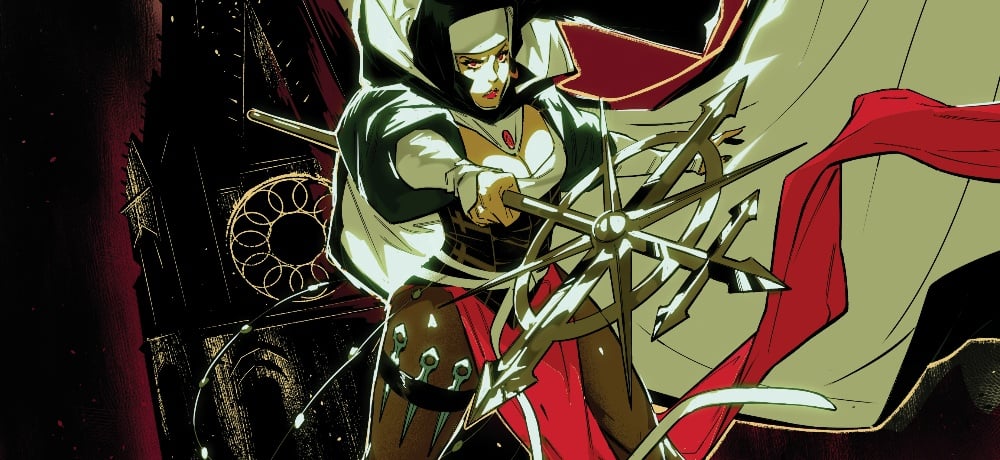
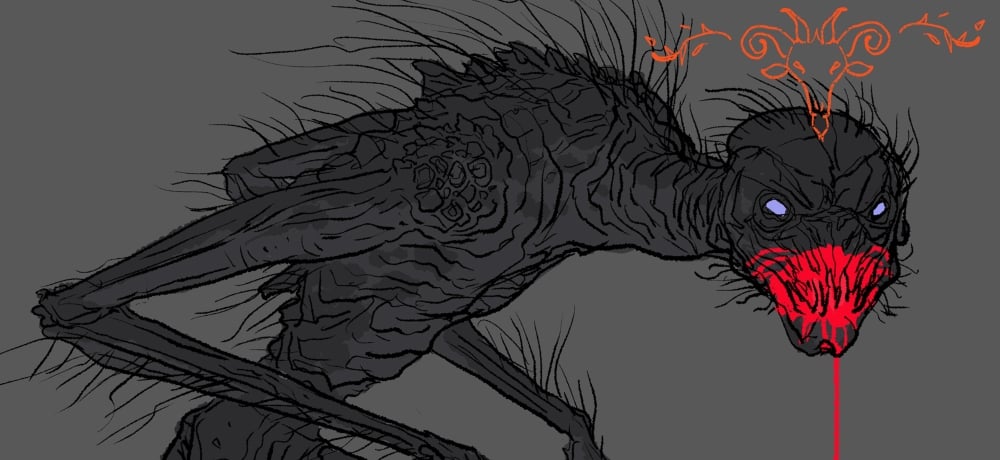
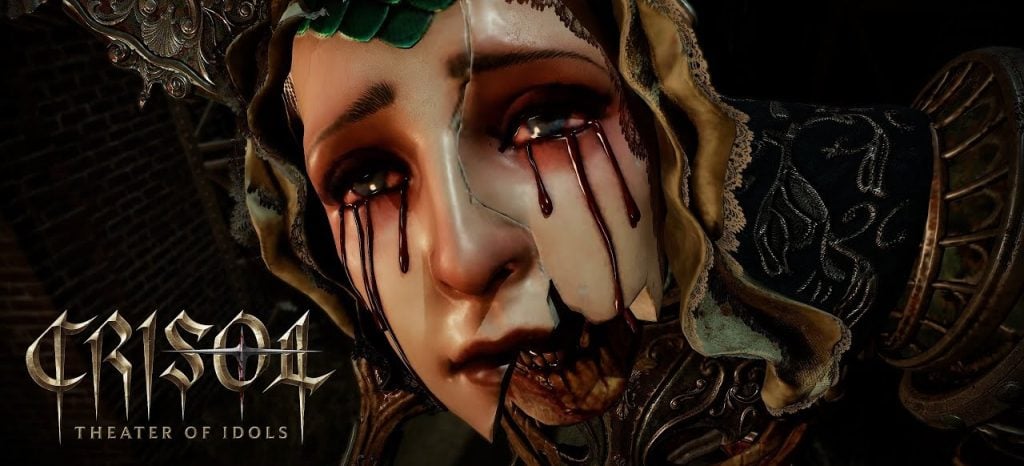
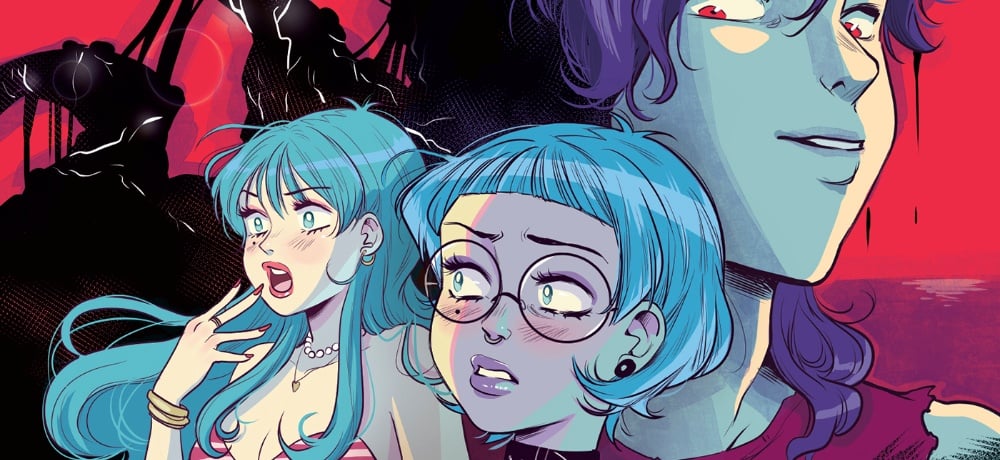
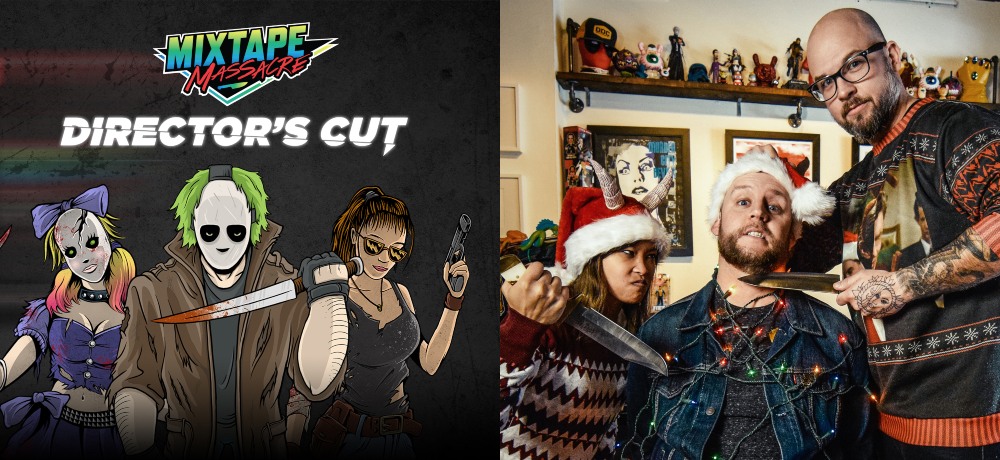
As someone who has been a board game aficionado for as long as I can remember, some of my favorite nights over the last few years have happened in the presence of Mixtape Massacre, the slasher board game that provides endless fun and entertainment for horror fans. The first time I played Mixtape Massacre was with the F! This Movie crew back in Chicago a few years ago, and the game has given myself and my partner a bit of a respite throughout the lockdown of 2020, which is refreshing because not every board game that says it’s for two players is still fun with only two players, but MM definitely is.
And after five years of Mixtape Massacre being out in the world and being enjoyed by fans from all over, Freddie Carlini, Merrijoy Vicente, and Matt Corrado of Bright Light Media are getting ready to unleash their Director’s Cut of the game, which fans can support through Bright Light’s Kickstarter campaign that will be ending on April 8th at 9:55am EST. Daily Dead recently caught up with the trio behind Mixtape Massacre to talk about their five-year journey with the game, what they’ve learned along the way, and what fans can expect from this brand new Director’s Cut edition of MM, which features improved mechanics and rules, new components, and even more slashing!
Let’s start off talking about Bright Light Media outside of Mixtape Massacre, and how that collaboration led to the game.
Freddie Carlini: Our company's day-to-day is like a marketing or media studio. We do web design. We do video production. Matt does murals. We do graphic design, branding, all that kind of stuff. Matt and I started a company about 11 years ago, Bright Light Media, and MJ started working with us at the time. And then basically, I had toyed around for a couple of months with an idea for this game called Mixtape Massacre. And I brought it to Matt and MJ at lunchtime one day and said, "Hey guys, check this out and tell me what you think." Then we sat down and we played through it and everyone just started coming up with all these ideas and we just started pouring it into the game. So that's how it started, and we just built it from there.
So what was that initial process like of putting this all together? There's such an intricacy to what Mixtape Massacre does, where you guys aren't aping any other games out there, and that’s really cool.
Freddie Carlini: I think part of that comes from having game nights where you sit down and then you're going through all these games. One of the things we noticed was that there weren't a lot of options for slasher horror games. The other part of it was that you would probably spend about two hours of the game night just trying to get the game started, where you’re trying to learn the rules, trying to get everyone on the same page, and things like that. So I think we did a backwards process of, “What's a cool way to create something that has a fun theme and a good entry level that will get people going in 15 to 20 minutes, where they can just pick it up and start playing and it has like a party style to it, too?”
Initially, this was something you launched through Kickstarter years ago, if I'm not mistaken. Kickstarter at that point, it was successful, but there was still a lot of trepidation about the platform itself. Were you guys nervous initially launching on Kickstarter, or did it make the most sense because of the fact that you're building this for a community of people who really haven't had something like this before?
Matt Corrado: When Freddie came in originally with the idea, it was a little intimidating because we didn't have a ton of experience making games. So, was this something we could do? The first thing we did was research what was out there and Kickstarter at the time was kind of this bubbling community for board games. There had been a bunch of other stuff on there, but I wasn't as familiar with the board game side of it. When we dove into that, we saw it was this pretty robust community online on Kickstarter for board games specifically.
Then, as we started looking through some of those games, we were like, "Okay, wow. Some of the games that are on here, we could make a better game." Graphics-wise, we have a background in marketing and design, so we were coming at it from more of a visual perspective, where some of these games might have cool mechanics, but they are lacking in how they look. We definitely wanted to nail the theme. We wanted to make it super fun. We wanted to incorporate all these jokes and references and all this stuff. We wanted to really go hard at that angle, and Kickstarter gave us a chance to put something out there that felt like it could compete with the other stuff that we saw on Kickstarter that was successful on there already.
Freddie Carlini: And while we're doing this, MJ was trying to build a social media presence for us.
Merrijoy Vicente: Yeah. It was a lot of doing whatever we can while we're building it on the side and let's just follow a bunch of people and figure it out as we go. We were just building it from the ground up social media-wise, and then it just went from there.
Freddie Carlini: It was weird because we knew we'd get some kind of audience because Kickstarter had an audience for games. So I think the nervousness was also like, "Well, who are we actually marketing this to? Are we marketing this just to horror fans? Or are we marketing this to board game people?" There were a lot of questions at the beginning. MJ was trying to build an audience on social media and was sending press releases to everyone.
Merrijoy Vicente: Pretty much whoever would take it [laughs].
Matt Corrado: There were so many different aspects to it. There was the creation of the actual game. Then there was the Kickstarter part, raising the money. Then there's the biggest thing, what you might argue is the hardest part, which was getting the word out about it. We put all of the experience that we had in running our company and doing marketing for other clients, so I guess we had some advantage in that respect, because we were familiar with how the process works. But up until then, we hadn't really done it for ourselves. So the other cool thing about this is that over the years, as working as a creative team, we had talked about and thrown around different ideas that were passion projects that we wanted to consider making and putting out ourselves, but we just hadn't found the right thing.
And then this idea popped up and once we figured out some of the nuts and bolts, we decided to run with it. It was just a cool thing because we could take all the things we had learned for the five or six previous years running our business and start to put them to work with our own product.
Freddie Carlini: The most exciting part of all of this was that we were finally putting all this education and all this knowledge we had towards our own project for once, which was pretty cool and pretty empowering.
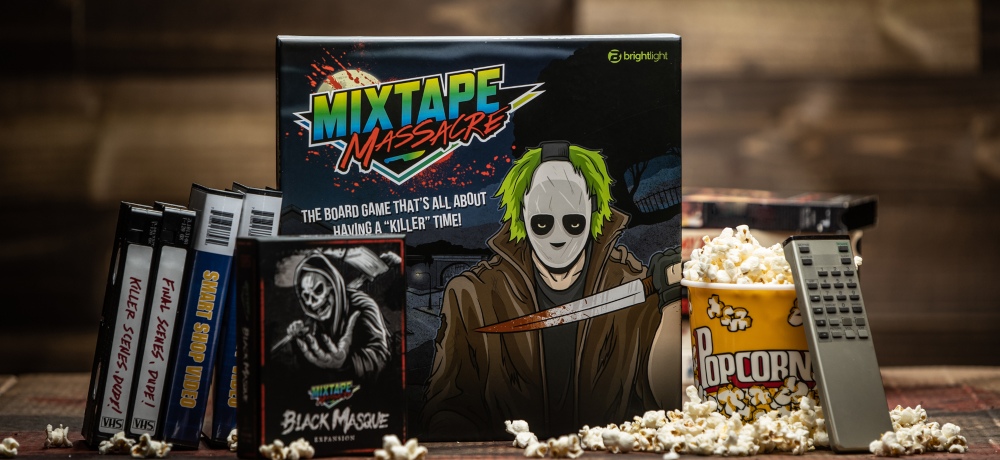
You’ve been doing this for several years now, so what have you guys learned about that part of the process that's either surprised you or showed you things you should do or shouldn't do?
Matt Corrado: I mean, I think that social media in general, in the five or so years that we've been doing this, has changed so much, even within that timeframe. It changes fast. We've just tried to use it as a tool, just like everything else is, and try to build a community. There are plenty of other brands out there that have a bigger following online than us or that have 100,000 followers or whatever. That's certainly cool and it looks great, but I think that we've really taken the approach of trying to find an actual solid fan base and community and I think that really goes a long way.
It's not always as much about how large your reach is. There's some marketing stuff out there that says, if you have 1,000 dedicated fans, you can essentially pretty much run a successful small business with those 1,000 really dedicated fans. We take an approach where we try to really interact with everyone, where we're not just throwing stuff out there. We're getting feedback, we're interacting with people on different platforms, and we try to take advantage of those platforms to really connect and meet people. Because our product is a game and it's something that brings people together and is something that is supposed to be shared with other people. That really works for us because the best thing that we can do is just get other people to be talking about it and sharing it for us. Then, it reciprocates this whole community vibe that we really try to tap into and try to be authentic with.
Freddie Carlini: I think, MJ, you and I tend to do a lot of the communication through social media with people. I would say that we've done a pretty good job of being sincere, but we've also done a pretty good job of just being like a mom-and-pop shop of board games kind of thing, too, where people can just talk to us, they message us through Facebook, ask questions about the games, or send us an email. We always write them right back. On the weekend, they're playing at a family game night where we're responding to these things or answering questions for them. They tweet us, we tweet back.
It's just one of those things where it is a community. It's just hanging out and talking about it and sharing stuff with people. So I think that's also been a big difference for a lot of people, where we have people who write to us all the time and just say, "We love you guys. We love your products, but we especially just love how quick and communicative you are with everyone and how you're always keeping us in the loop on things." So I think that's always been important is that you're just always upfront and honest with the customers at all times.
The thing that's always stood out to me is the way that you keep expanding on this concept of Mixtape Massacre, because one, it makes me think of the horror genre in general and how reflexive it is in terms of things that people enjoy, we keep getting more of and we keep getting to enjoy these things more and more. What was that impetus where you guys were like, "We're going to keep going with this and we're going to keep building this and we're going to keep giving fans this thing that they enjoy, but doing it in different ways"?
Freddie Carlini: Well, I think part of it was like what you're saying. Our game is a horror game and in that genre, there are a lot of sequels and spinoffs and universes and things of that nature. I think what we saw was the initial reaction to the game when we put it out. Continuously, what we do is we listen to feedback, listen to what people say and the things they're looking for to add into the game and those kinds of things. So we just started creating more new stories, more new characters, and new types of mechanics.
The cool thing about our game was that we're able to get customers who may never have wanted to pick up a board game, but then they played this and they're like, "Oh, I love this." Then we can start giving them new tricks and new mechanics that people who play hardcore games, they would look at our game and say, "It's super simple." But then with these new experiences and new sequels and things, we can start adding more layers and more layers and more layers. These people who were novice players at first, who never picked up a game before are now playing with all these different mechanics and understand all these different rule sets and things like that, so it's twofold. We get to keep adding new mechanics and layers of the game, but we also get to keep building the world, adding new characters, new sequels and spinoffs and things of that nature to it.
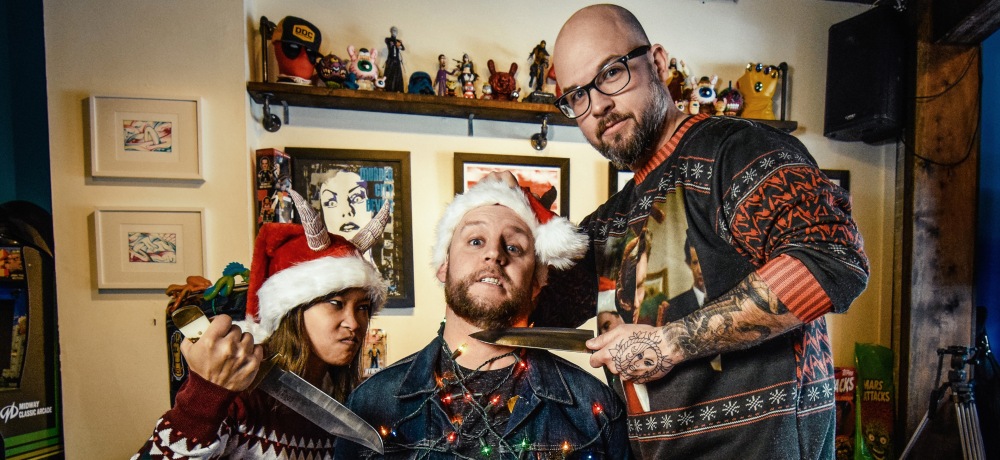
Speaking of spinoffs and new iterations, for anybody who's reading this who maybe hasn't seen your socials, can you discuss the Director's Cut and what direction you are taking Mixtape Massacre in now with this new version?
Freddie Carlini: You're in the industry. You know how it goes, where for years a movie's out and then someone comes out with the director's cut version of it, where there are added scenes and things like that. I think that was our approach to this. But also, we're going into the fifth anniversary of the release of the original game, so we went with an idea we had where we've taken all this feedback through the years from people, we've put out new products with new mechanics and things like that. But if we were to go back to the original game, what are some things we might've discussed at the time that we left off the table because we thought it'd be too complicated? What are some things now that, looking back, would have fit better into the game or we wanted in there, but it wasn't in there? What about some of these extra components and things like that? We now have way more experience with manufacturing than we've had before, so what can we do with this piece or this piece, or how can we treat this piece differently now?
So it was one of those situations where we were given this opportunity and we are also in the last hundreds of our original printing of the game and we are about to sell out of that. So no matter what, we were going to do a second printing, so it became this thing of, "All right, we're going to be doing a second printing. Do we want to do a second edition that's actually made up of improvements and things like that, or do we just go and print the same thing again?"
I think the team all agreed that we have got something really good here. People love it. Some people have had it for five years, and they might've busted their game to pieces and they might be wanting a new version anyway, so we thought this was a good time to sit back down as a team, reassess the original game and any things that bother us or things we want to fix, we could do that now. And that's what we did for the Director’s Cut.
Merrijoy Vicente: For a while now, we had already been talking about whether or not we should update some of the rules for some things, because some things were bothersome and we would hear things, not necessarily complaints, but more so, "Oh, maybe it would have worked better this way." We've taken that all through the time that the game has been out and we've really listened. And as we've also played it, we're like, "Yeah, we could have definitely fixed that." It's been a long time coming for us, just trying to think about the best ways to make this game better. Now was the time to do it.
For all three of you, what has been the most rewarding aspect of this five-year journey with Mixtape Massacre?
Freddie Carlini: For me, I'd say that it's been one, to put out your own idea and put out your own product. That's probably number one, but two, selfishly, it's that I got to put out something into the horror realm. In terms of movies, horror movies have been something that I have loved ever since I was a kid, thanks to my dad. It's just cool to be able to put that out there and then see a bunch of fans of the same genre love something that you've done. That's probably the most rewarding part of all of this for me.
Merrijoy Vicente: I absolutely agree. It's one of those things where it's been really awesome to see the feedback mainly. When we would always go to all of these conventions and when we're just sitting behind a table, it's crazy when people want to come up and say, "Hey, thanks for making this game. It was so much fun." They actually want us to sign their box, which is strange because we're just three people that work out of an office in Kensington, Maryland. So it's like, "Okay, you want my autograph? That's weird, but cool." But to see the feedback, and the fact that people really love it and really dig it and they just go on and on about how much fun they had, that has been very rewarding.
Matt Corrado: I agree with both of those sentiments. For me, it's always about just being able to put something out into the world that you created from scratch. I think that's always the most rewarding part. And then it's just how we've been talking with you and telling our story. We never really knew exactly where this would take us, so the most fun part for me is always just seeing where it goes. It just has a mind and legs of its own. We put this thing out into the world and, like MJ was saying, it becomes something bigger than what we initially thought it would be and different, too. So watching that story unfold is always the most fun, and it's been a pretty fun ride to this point. We're just really excited to see where it continues to go from here.
If you’d like to support the Director’s Cut of Mixtape Massacre, be sure to check out their Kickstarter campaign before it ends on Thursday, April 8th at 9:55am EST. For more information, click HERE.
---------
Go HERE to catch up on all of our Indie Horror Month features!